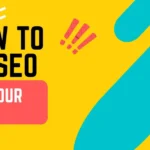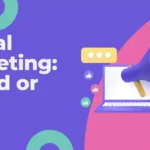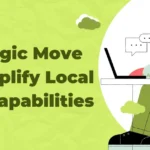Embarking on a career in digital marketing is an exciting journey into a dynamic and ever-evolving field. As businesses increasingly move online, the demand for skilled digital marketers has surged, offering ample opportunities for those ready to dive in.
Whether you’re a recent graduate, a professional looking to switch careers, or someone with a passion for marketing and technology, this roadmap will guide you through the essential steps to kickstart your career in digital marketing.
Understanding Digital Marketing
Digital marketing encompasses a broad range of practices aimed at promoting products or services online. It includes content marketing, search engine optimization (SEO), pay-per-click advertising (PPC), social media marketing, email marketing, and more.
A successful digital marketer understands how these components work together to create a cohesive and effective marketing strategy.

Step 1: Build a Strong Foundation
Educate Yourself
Start with the basics. Familiarize yourself with the fundamentals of digital marketing through online courses, webinars, and blogs. Many platforms offer free courses that cover SEO, content marketing, social media, and other digital marketing essentials. Websites like Coursera, Udemy, and HubSpot Academy are great places to start.
Stay Updated
Digital marketing is a fast-paced field. Follow industry blogs, join digital marketing groups on social media, and subscribe to newsletters to stay informed about the latest trends and tools. Websites like Moz, Search Engine Journal, and Social Media Examiner are valuable resources.
Step 2: Gain Practical Experience
Start Your Own Projects
Apply what you’ve learned by starting your own digital marketing projects. Create a blog, manage social media accounts, or run a small PPC campaign. Real-world experience is invaluable, and having tangible projects to show potential employers can set you apart from other candidates.
Seek Internships or Volunteer Work
Internships or volunteer positions can provide hands-on experience and help you build a professional network. Look for opportunities with marketing agencies, non-profits, or small businesses that need digital marketing support. Even if the position is unpaid, the experience and connections you gain can be invaluable.

Step 3: Specialize and Certify
Choose a Specialty
Digital marketing encompasses various specialties. As you gain experience, identify the areas that interest you the most, such as SEO, social media marketing, or data analytics. Specializing allows you to deepen your expertise and become more valuable to employers.
Earn Certifications
Certifications can validate your skills and make you more attractive to employers. Many platforms offer certification programs in specific areas of digital marketing. Google Ads certification, Facebook Blueprint, and HubSpot Content Marketing Certification are just a few examples.
Step 4: Build Your Portfolio
A portfolio showcasing your work and achievements is crucial for a career in digital marketing. Include successful campaigns you’ve run, content you’ve created, and any measurable results you’ve achieved. A well-crafted portfolio demonstrates your capabilities and what you can bring to potential employers.
Step 5: Network and Engage with the Community
Attend Industry Events
Digital marketing conferences, meetups, and workshops are excellent opportunities to learn from experts and network with peers. Engaging with the digital marketing community can provide insights, inspiration, and connections that can propel your career forward.
Leverage LinkedIn
LinkedIn is a powerful tool for building professional relationships in the digital marketing field. Connect with industry professionals, participate in discussions, and share your achievements and insights. A strong LinkedIn presence can open doors to job opportunities and collaborations.

Step 6: Apply for Jobs and Prepare for Interviews
With a solid foundation, practical experience, specialized skills, and a strong portfolio, you’re ready to apply for digital marketing positions. Tailor your resume and cover letter to highlight your most relevant experience and achievements.
When preparing for interviews, be ready to discuss your previous projects, the results you achieved, and how you stay updated on industry trends. Demonstrating your passion for digital marketing and your eagerness to learn can make a strong impression on potential employers.

Conclusion
Starting a career in digital marketing requires a combination of education, practical experience, specialization, and networking. By following this roadmap, you can build a strong foundation, develop in-demand skills, and position yourself for success in this exciting field. Remember, the key to a successful career in digital marketing lies in continuous learning and adaptation. Embrace the journey, stay curious, and never stop exploring new ways to engage and inspire through the power of digital marketing.










